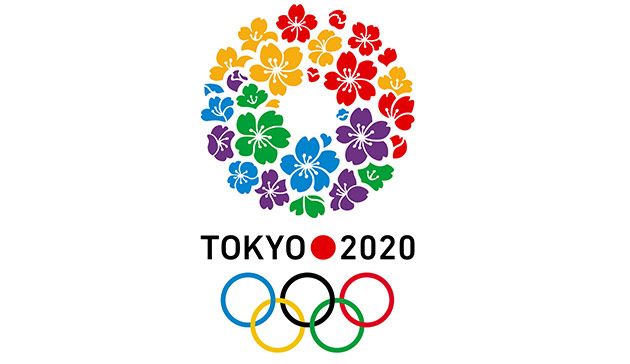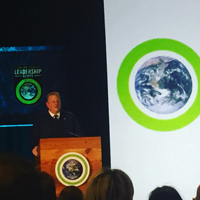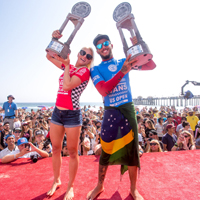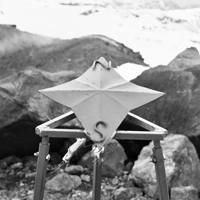
International Olympic Committee (IOC) President Thomas Bach announced last week that the time has come for sport to play a greater role as a force for positive change around the world during a speech at the UN headquarters in New York.
His remarks were met with broad support from UN Secretary-General Ban Ki-moon and President of the UN General Assembly H.E. Sam Kutesa, who also spoke at the event, called “United Action Towards Sustainable Development For All Through Sport.”
“Sport has a unique role in society,” President Bach said. “Sport is the only area of human existence that has achieved its own universal law. The rules of sport are recognized and followed wherever sport is played. They are based on a global ethic of fair play, respect for opponents, tolerance and friendship. In sport all people are equal.”
The IOC President continued: “Sport and physical education programs provide a strong incentive for school attendance and contribute to a broad spectrum of life skills. Sport teaches respect for rules and respect for others, tolerance, non-discrimination, team-building, communication, decision-making and problem-solving. It promotes self-esteem, personal responsibility and self-discipline. Active children are learning more effectively. Sport is not a distraction from education – it is an important part of education.”
The IOC President underscored how Olympic Agenda 2020, the IOC’s strategic roadmap for the future of the Olympic Movement, is driving change that is sending “a strong message that the Olympic Movement is ready to engage with society in new and more meaningful ways.” This includes a new global sustainable development agenda that will be finalized later this year.
“We are showing in a transparent way that more than 90 per cent of the revenues the IOC generates are distributed to the sporting movement and to athletes worldwide,” President Bach said. “This means that the IOC distributes USD 3.25 million a day, every day of the year, for the development of sport worldwide.”
The United Nations has long recognized the contribution of sport for development and peace, and collaboration between the IOC and the UN has played a central role in spreading the acceptance of sport as a means to promote internationally agreed development goals.
“Let us use sport to leave a transformative and sustainable legacy for our children and grandchildren. It is sport’s motivational appeal that gives hope and helps improve the lives of many,” said the UN Secretary-General. “I sincerely hope that the Member States of the United Nations, while they negotiate to shape the future development agenda [see] the importance of sport, not only in health, but in peace and harmony, reconciliation, mutual understanding and respect for others, and fair games and rule of law and human rights – all these will be duly reflected so that we all can work together to build this world better for all, where all the peoples human dignity and human rights and happiness and prosperity and wellbeing will be respected.”
Ireland’s permanent representative to the UN, Ambassador David Donoghue, is one of facilitators in the negotiations for the development of the Sustainable Development Goals. He said: “It is clear that sport is a key contributor to many of the goals and targets of the MDGs. As we move towards agreement on a post-2015 Development Agenda, I hope that it will be possible to acknowledge in some way the role of sport in supporting development and peace.”
IOC President announces ground-breaking educational service for elite athletes
International Olympic Committee (IOC) President Thomas Bach also announced that the IOC will launch a free, online education service aimed specifically at Olympians, other elite athletes and their coaches.
The new service, called “The IOC Athlete Learning Gateway” will go live on May 28, during the 7th IOC Athlete Career Programme Forum in Lima, Peru.
For over a year, more than 4,000 athletes and coaches from around the world have been helping the IOC test and develop the pilot version of the experimental “MOOC” (massive open online courses). Leading academics, sports institutes, sports leaders and Olympians have contributed content for the program, including courses and live online seminars.
President Bach said: “The long-term interests of athletes are a priority for the IOC. Through Olympic Agenda 2020, the IOC has a unique opportunity to act as a bridge between busy athletes and the world’s best academics and learning tools. The IOC Athlete Learning Gateway will allow athletes to shape their futures while still pursuing their athletic careers.”
Recommendation 18 of Olympic Agenda 2020, the IOC’s strategic roadmap for the future of the Olympic Movement, calls for support to athletes to be strengthened. This includes the development of athlete career programmes with all the relevant stakeholders and increasing engagement with athletes on important topics related to their careers on and off the field of play.
“This is just one of many important new initiatives being driven by the Olympic Agenda 2020 reforms, which will strengthen and improve support for the athletes,” said IOC Athletes’ Commission Chair and Athens 2004 silver medallist Claudia Bokel. “This inspiring free electronic platform will give athletes, wherever they may be in the world and at whatever stage of their athletic career, access to educational material produced by leading academics and athletes. This is an important step forward for the welfare of athletes.”
IOC Entourage Commission Chair and Seoul 1988 gold medallist Sergey Bubka said: “The life of an athlete is extremely busy: they are constantly on the road; they spend a lot of time training. It is very difficult to find the time to study, to properly prepare for life after sport. But thanks to the many changes brought about by Olympic Agenda 2020, athletes will continue to be given more and more opportunities like the IOC Athlete Learning Gateway. This online tool gives athletes the means to successfully combine sport and education for brighter futures.”
The pilot program for the IOC Athlete Learning Gateway was evaluated by the IOC’s Athletes’ Commission, Entourage Commission and adedicated independent Academic Advisory Board. The IOC President agreed with their recommendation to establish the full service as part of Olympic Agenda 2020.


